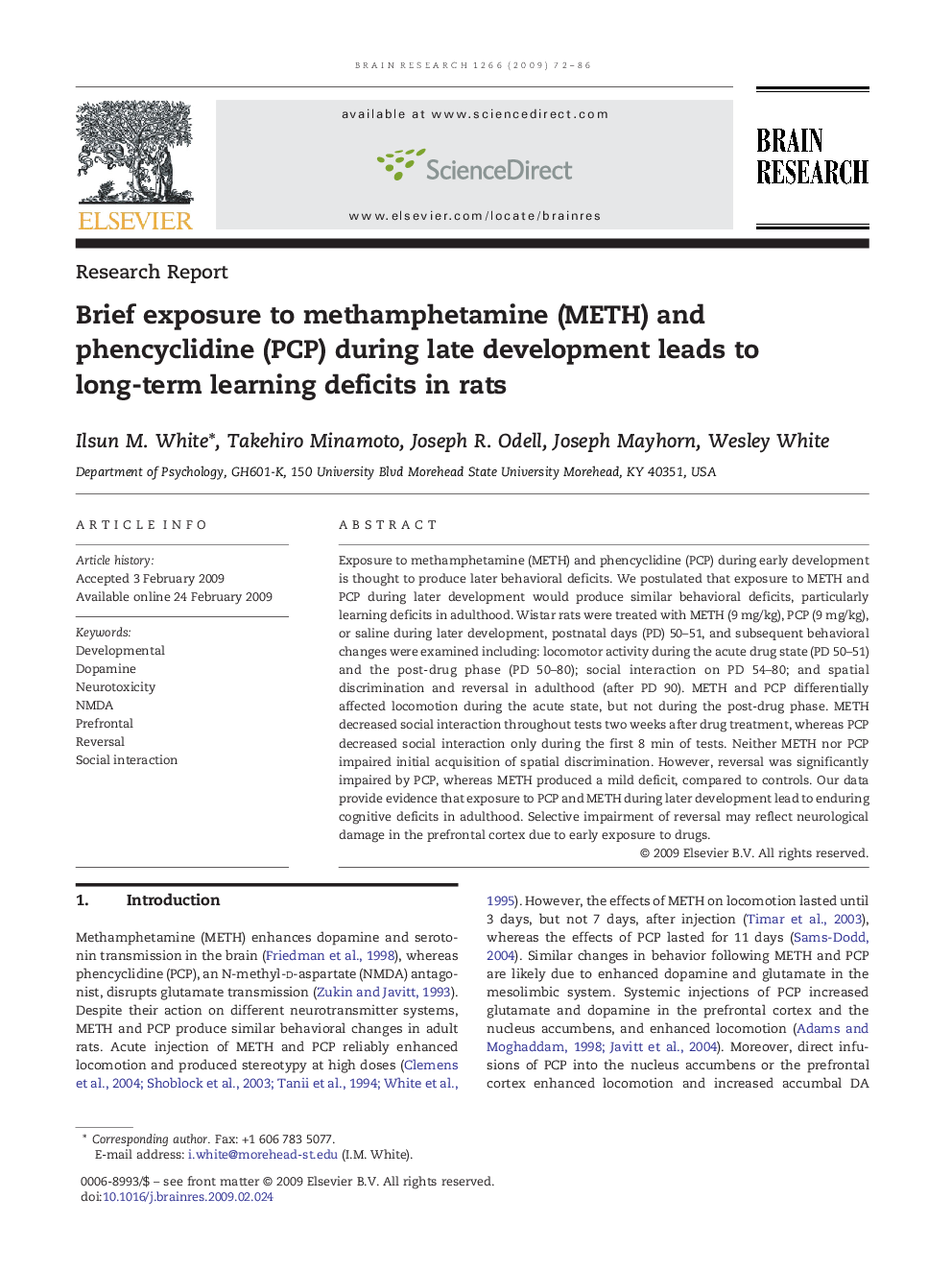| کد مقاله | کد نشریه | سال انتشار | مقاله انگلیسی | نسخه تمام متن |
|---|---|---|---|---|
| 4328353 | 1614173 | 2009 | 15 صفحه PDF | دانلود رایگان |

Exposure to methamphetamine (METH) and phencyclidine (PCP) during early development is thought to produce later behavioral deficits. We postulated that exposure to METH and PCP during later development would produce similar behavioral deficits, particularly learning deficits in adulthood. Wistar rats were treated with METH (9 mg/kg), PCP (9 mg/kg), or saline during later development, postnatal days (PD) 50–51, and subsequent behavioral changes were examined including: locomotor activity during the acute drug state (PD 50–51) and the post-drug phase (PD 50–80); social interaction on PD 54–80; and spatial discrimination and reversal in adulthood (after PD 90). METH and PCP differentially affected locomotion during the acute state, but not during the post-drug phase. METH decreased social interaction throughout tests two weeks after drug treatment, whereas PCP decreased social interaction only during the first 8 min of tests. Neither METH nor PCP impaired initial acquisition of spatial discrimination. However, reversal was significantly impaired by PCP, whereas METH produced a mild deficit, compared to controls. Our data provide evidence that exposure to PCP and METH during later development lead to enduring cognitive deficits in adulthood. Selective impairment of reversal may reflect neurological damage in the prefrontal cortex due to early exposure to drugs.
Journal: Brain Research - Volume 1266, 17 April 2009, Pages 72–86